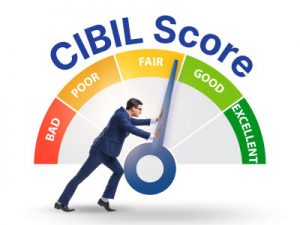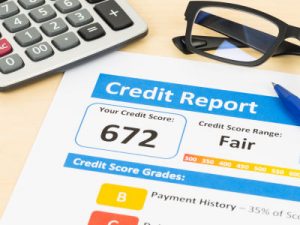What Does Your CIBIL Score Mean

You have probably heard of CIBIL scores more times than you can count. But, did you know what these scores mean?
Your CIBIL score is essentially a numeric representation of how creditworthy you are and ranges between 300 to 900. When lenders provide loans, your interest rate, repayment term, etc., are determined by how risky the lenders perceive you to be.
If your score is high, i.e., above 750, then the lenders consider you to be someone who will repay loans on time and therefore present less risk. Therefore, you will be able to avail loans at lower interest rates.
How is CIBIL Score Calculated
Your credit score is based on multiple parameters such as your repayment history, type of credit availed, repayment duration, existing debt, credit utilization ratio, credit enquiries, etc. All of these will have an impact on your credit score.
Your CIBIL Score Decoded

Curious to find out your creditworthiness? Your CIBIL score can tell you that. Here’s what these scores really mean –
300 to 599 – Poor
It is time to pull up your socks and turn around your financial habits because they could cost you dear in the long run. Such scores are a result of either defaulting on loan payments, settling your loan, opting for multiple loans at the same time or having an extremely high credit utilization ratio.
These scores make it hard to avail loans and most lenders do not provide loans to borrowers with such low scores. Even if they do, the interest rates and repayment terms will be very strict and not to the your advantage at all.
Note: If you do not have credit history or are new to the system, your credit score will probably be reported as N/A. While this is not looked at negatively, not all lenders provide loans to first time borrowers.
600 to 749 – Fair
Well, looks like there is some work to be done here. While you are not in the ‘danger zone’ of becoming a borrower that lenders actively avoid, a CIBIL score in this range is not ideal, especially if your score is below 700. Have you perhaps missed one or two of your EMIs? Or is your credit utilization ratio high? Have you availed multiple loans at the same time?
There can be a number of reasons for a score this low but it is important that you build this up. Wondering why a high CIBIL score is important? Click here.
750 to 849 – Good
If this is your credit score then well done! You have definitely been repaying your loans on time and probably have a healthy mix of secured and unsecured loans as well.
Additionally you have probably followed certain best practices such as availing only one loan at a time and paying more than just the minimum amount due for credit card bills.
Not only will you receive loans easily, you also have a fair bit of space to negotiate your terms and conditions. Continue to go down the route and ensure that you maintain your current repayment habits.
850 and Above – Excellent
Congratulations! You have officially unlocked the last level and are no less than a legend! You either have the most perfect credit record or you’ve managed to hack the CIBIL servers…we really hope it is the first one!
Having a CIBIL score above 850 may not be easily achievable but it is definitely possible. If this is your score then not only have you been consistently repaying all your debts on time but you have also learned to manage your finances (repayments, credit utilization, maintaining old credit cards, etc.) perfectly right from the get-go. Every expert advice on how to increase one’s credit score has been followed!
You are every lender’s dream customer and will have no problem getting a loan on your terms and conditions along with the lowest possible interest rate.
Is Building Credit Hard?

While a credit score below 750 is not ideal, the good news is that you can always build it & improve step-by-step by following these guidelines –
- Repay your loans on time
This is perhaps the most important step to follow as missing out on your EMI payments has a detrimental impact on your credit score.
- Pay more than just the minimum amount due
If you are a credit card user, try your best to pay more than the minimum. Not only will this help you pay off your bills earlier, it will also help you increase your credit score over time
- Maintain a low credit utilization limit
Ideally, your credit utilization should not exceed 30% of the limit
- Have a healthy mix of credit
Having multiple unsecured loans at the same time can have a negative impact on your credit score. A mix of secured (home loans, car loans) and unsecured (personal loans, credit cards) loans is recommended
- Review your credit score regularly
You can check your credit score for free once a year or subscribe to affordable paid plans. It is important to keep an eye out for discrepancies or mistakes that can affect your credit score
To know more about how you can increase your CIBIL score, check out our extensive guide on the same.
In Conclusion
Imagine availing loans at low interest rates and on your terms and conditions! If this seems unreasonable, we assure you it is possible. All you need to do is have a good CIBIL score. Although this seems easier said than done, there are a number of disciplined steps you can take to build your score if it is low or maintain it if your score is already high.
Did you know that a great way to build your score, especially if you are new to credit, is by getting instant personal loans from Money View. Not only are these loans versatile, they can be disbursed within 24 hours of approval. Visit the Money View website or download the app to apply today!
Do you want to know more about CIBIL scores? Let us know your thoughts in the comments below.
Thanks
All loans an time payments,my cibil score is 650 to 750,my track check i want personal loan sey iam eligible Yes or No.
Hello, please send an email to loans@moneyview.in
Very Useful matter n Very Glad.